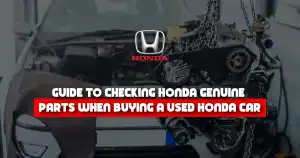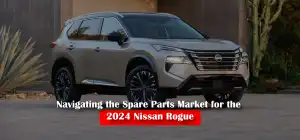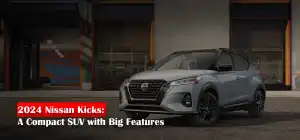The automotive industry was abuzz with discussions about a potential $60 billion merger between Honda and Nissan. The merger was expected to reshape the industry, combining the strengths of two of Japan’s biggest car manufacturers.
However, despite initial negotiations, the deal collapsed, leaving many wondering what went wrong. In this blog, we take a closer look at why the merger failed and what it means for the industry.
At Spareparts.me, you can still find genuine auto parts in Dubai for Honda and Nissan, ensuring high-quality replacements regardless of your vehicle's make or model.
The Background of the Honda-Nissan Merger Talks
Honda and Nissan, two of Japan’s top automakers, have long been competitors in the global market. However, in the face of rising competition from electric vehicle (EV) manufacturers and supply chain disruptions, talks of a merger began as a strategic move to stay ahead.
The deal aimed to create a joint venture worth $60 billion, allowing both companies to pool resources in research, development, and manufacturing. The merger would have given them a stronger foothold in the evolving automotive industry, particularly in EV production.
Key Reasons Behind the Merger Collapse
Several factors led to the failure of the Honda-Nissan merger. Let’s explore the key reasons:
1. Leadership Disagreements
Both Honda and Nissan have distinct corporate cultures and leadership styles. Nissan, which had previously struggled with internal conflicts after the Carlos Ghosn scandal, was looking for stability.
On the other hand, Honda was cautious about losing its independent decision-making power. These leadership differences created tensions, making it difficult to align their long-term visions.
2. Mismatched Business Strategies
While both companies focus on automobiles, their strategies differ significantly. Honda has been investing heavily in hybrid and hydrogen-powered vehicles, whereas Nissan has prioritized fully electric cars. This difference in direction created conflicts about the future of the merged entity and how resources would be allocated.
3. Financial Concerns
Merging two large corporations requires careful financial planning. Nissan has been recovering from financial struggles, and Honda was concerned about taking on unnecessary risks. With economic uncertainty and fluctuating auto sales, neither company wanted to burden itself with additional financial stress.
4. Government Regulations and Approval Hurdles
Mergers of this scale often face government scrutiny. Japan’s regulatory bodies would have had to approve the deal, and there were concerns about potential antitrust issues. Additionally, given that both companies have partnerships with other automakers, regulatory hurdles further complicated the process.
The Impact of the Failed Merger on the Auto Industry
The collapse of the merger affects not just Honda and Nissan but also the global automotive market.
1. Competition in the EV Market Continues
Had the merger succeeded, the combined entity would have become a strong competitor to companies like Tesla and Toyota in the EV market. With the deal off the table, both Honda and Nissan will now have to independently invest in electric and hybrid technologies to stay competitive.
2. Supply Chain Challenges Remain
A merged Honda-Nissan could have streamlined their supply chain, potentially reducing costs for parts and materials. With the deal falling through, both companies will continue facing supply chain disruptions, particularly in semiconductor chips and EV battery production.
3. Potential Future Partnerships
While the merger has collapsed, Honda and Nissan may still collaborate in specific areas such as battery technology or autonomous driving. Automakers worldwide are forming strategic alliances to tackle common challenges, and smaller collaborations between the two companies are still possible.
What This Means for Car Owners and the Spare Parts Industry
For car owners, the merger’s collapse does not directly impact vehicle performance, but it does affect future innovations and spare parts availability.
- Honda and Nissan will continue producing and distributing auto parts separately.
- The demand for high-quality replacement parts remains steady.
- Vehicle owners must be cautious about sourcing genuine auto parts in Dubai to maintain performance and safety.
At Spareparts.me, we ensure that you get genuine auto parts in Dubai for both Honda and Nissan vehicles. Whether you need replacement parts for older models or the latest releases, our platform offers high-quality products at competitive prices.
Where to Find Reliable Honda and Nissan Auto Parts?
Finding authentic spare parts is crucial for maintaining your car’s efficiency. In the auto parts market in Dubai, you’ll find a wide range of products, but ensuring authenticity is key. Counterfeit auto parts can compromise safety and performance.
At Spareparts.me, we take pride in being a trusted auto parts supplier in UAE, offering:
- A vast inventory of genuine auto parts in Dubai for Honda, Nissan, and other leading brands.
- Competitive pricing on auto parts for sale in Dubai, making it easier for car owners to find high-quality parts without overpaying.
- Worldwide shipping, so you can access premium spare parts regardless of your location.
If you own a Honda or Nissan, rest assured that you’ll always find the best replacement parts at Spareparts.me.
Conclusion
The collapse of the $60 billion Honda-Nissan merger highlights the challenges of large-scale corporate partnerships. Leadership differences, financial concerns, and strategic mismatches ultimately prevented the deal from moving forward.
While the merger's failure means that both companies will continue operating independently, car owners and the auto parts industry remain unaffected. If you’re looking for genuine auto parts in Dubai, you can always count on Spareparts.me to provide high-quality, authentic spare parts for all Honda and Nissan models.
Stay updated with the latest automotive industry news and explore our extensive range of spare parts at Spareparts.me today!





